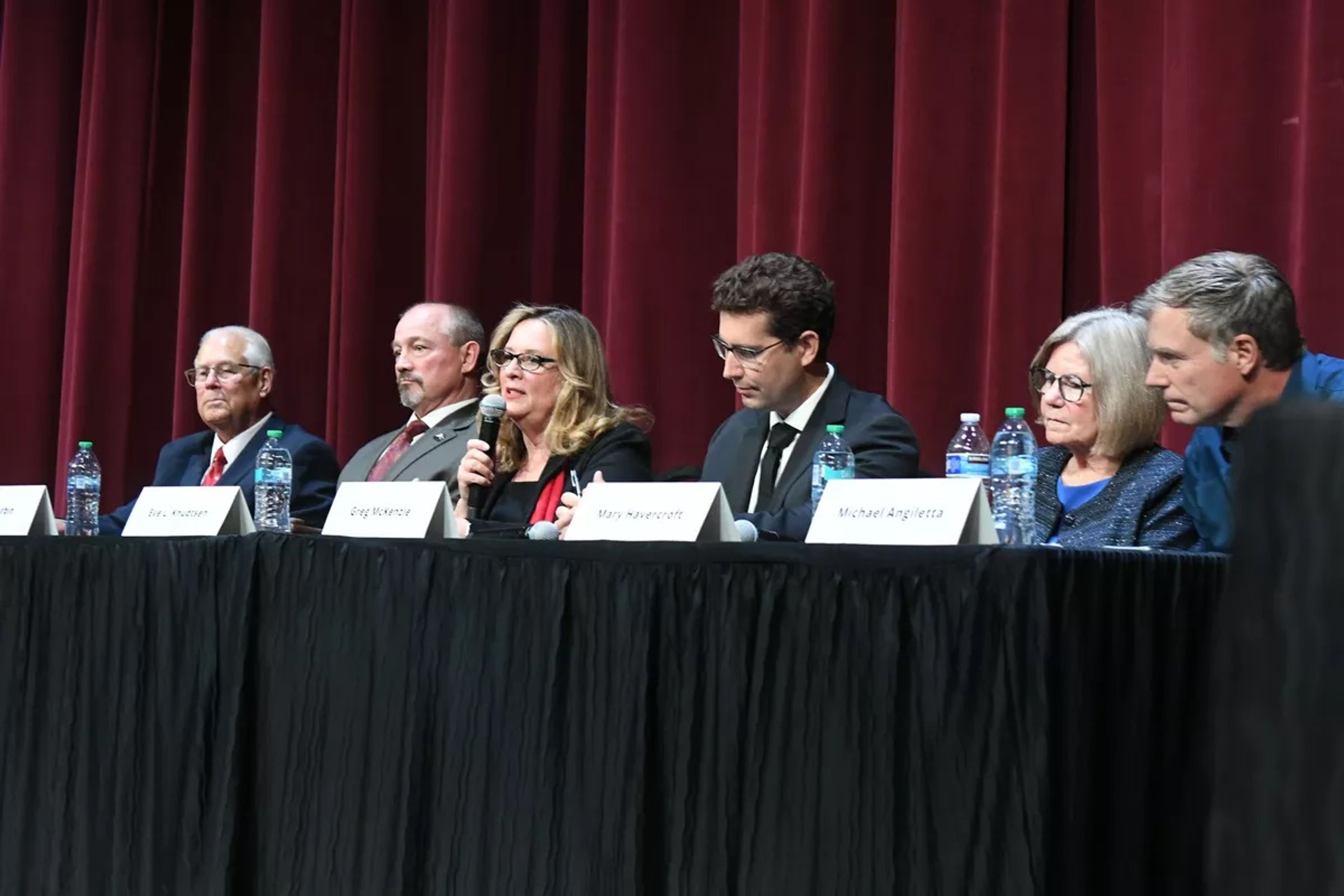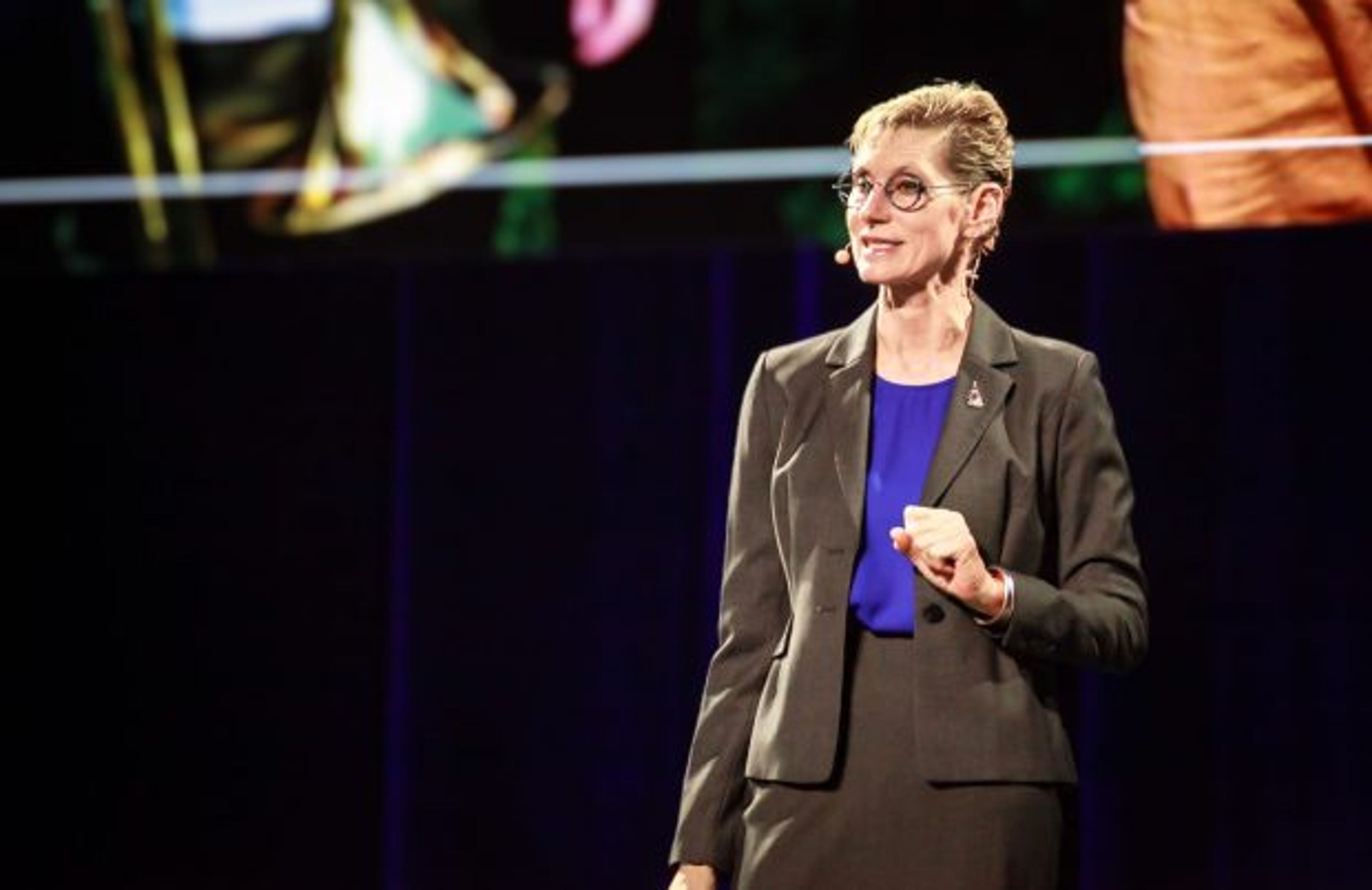Film star Hepburn dies at 96
'She always will be an American original'
OLD SAYBROOK, Conn. -- Katharine Hepburn, an icon of feminist strength and spirit who brought a chiseled beauty and patrician bearing to such films as "The Philadelphia Story" and "The African Queen," died Sunday afternoon. She was 96.
Hepburn died at her home in Old Saybrook with family by her side,
said Cynthia McFadden, a friend of Hepburn and executor of her estate. Hepburn, who had been in declining health in recent years, died of old age, McFadden said.
"Through her films generations to come will discover her humor, her grace, her keen intelligence," McFadden said in a statement from the family at a news conference near Hepburn's home, where the actress spent much of her childhood. "She was and always will be an American original. She died as she lived, with dignity and grace."
The lights will dim on Broadway at 8 p.m. Tuesday in her honor, said Patricia Armetta-Haubner, a spokeswoman for the League of American Theaters and Producers.
"I think every actress in the world looked up to her with a kind of reverence and a sense of 'oh boy, if only I could be like her,' " actress Elizabeth Taylor said in a statement.
During her 60-year career, she won a record four Academy Awards and was nominated 12 times, which stood as a record in the acting categories until Meryl Streep surpassed her nomination total in 2003. Her Oscars were for "Morning Glory," 1933; "Guess Who's Coming to Dinner," 1967; "The Lion in Winter," 1968; and "On Golden Pond," 1981.
Despite her success, Hepburn always felt she could have done more.
"I could have accomplished three times what I've accomplished," she once said. "I haven't realized my full potential. It's disgusting."
But, she said, "Life's what's important. Walking, houses, family. Birth and pain and joy -- and then death. Acting's just waiting for the custard pie. That's all."
Hepburn, the product of a wealthy, freethinking New England family, was forthright in her opinions and unconventional in her conduct.
She dressed for comfort, usually in slacks and sweater, with her red hair caught up in a topknot. She married only once, briefly, and her name was linked to Howard Hughes and other famous men, but the great love of her life was Spencer Tracy. They made nine films together and remained close companions until Tracy's death in 1967.
Her Broadway role in "Warrior's Husband" brought a movie offer from RKO, and she went to Hollywood at $1,500 a week to star opposite John Barrymore in the 1932 film "A Bill of Divorcement." The lean, athletic actress with the well-bred manner became an instant star. The voice Tallulah Bankhead once likened to "nickels dropping in a slot machine" became one of Hollywood's most-imitated.
Hepburn's third movie, "Morning Glory," brought her first Oscar. A string of parts followed -- Jo in "Little Women," the ill-fated queen in "Mary of Scotland," the rich would-be actress in "Stage Door," the madcap socialite of "Bringing Up Baby," the shy rich girl in "Holiday."
A theater chain owner branded her and other stars "box-office poison" after a series of flops, and her film career waned.
Undaunted, Hepburn acquired the rights to a comedy about a spoiled heiress, and, after it was rewritten for her, took it to the New York stage. "The Philadelphia Story" was a hit.
She returned to Hollywood for the 1940 film version, which featured James Stewart and Cary Grant. Once again she was a top star, with a contract at MGM for "Woman of the Year," "Keeper of the Flame," "Sea of Grass," "Dragon Seed," "Without Love," "State of the Union," "Pat and Mike" and "Adam's Rib."
Her first film with Tracy was "Woman of the Year," in 1942. Legend has it that when they met she commented, "I'm afraid I'm a little big for you, Mr. Tracy." His reply: "Don't worry, I'll cut you down to size."
One critic compared them to "the high-strung thoroughbred and the steady workhorse."
Tracy never divorced his wife, who outlived him by 15 years; Hepburn, though she led a PBS tribute to Tracy in 1986, rarely mentioned their private relationship.
"I have had 20 years of perfect companionship with a man among men," she said in 1963. "He is a rock and a protection. I've never regretted it." In another interview, she discussed their special screen magic, saying they represented "the perfect American couple."
After leaving MGM in 1951, Hepburn divided her time between the stage -- she appeared in Shaw's "The Millionairess" and Shakespeare's "As You Like It" -- and film. She coolly braved a jungle for "The African Queen" and did her own balloon flying in the low-budget "Olly Olly Oxen Free."
She co-starred with Taylor and Montgomery Clift in "Suddenly Last Summer," with Jason Robards Jr. in "Long Day's Journey into Night," with Laurence Olivier in the TV movie "Love Among the Ruins" and with Henry Fonda in "On Golden Pond," which won both of them Oscars.
She coaxed the ailing Tracy back onto the set for their roles as wealthy, liberal parents faced with the interracial marriage of their daughter in "Guess Who's Coming to Dinner." Tracy died before the film's release.
Hepburn nearly lost a foot in a car accident in late 1982 and spent almost three weeks in a hospital. But by the end of the year she was back before the cameras, co-starring with Nick Nolte in "Grace Quigley," a comedy about a woman teaming with a hit man to help old people who want to die.
"I don't believe in shocking people, but if I got sick and was no longer of any use to myself or anyone else, I would find a way of ending it," she once said.
For many years, she divided her time between New York and Connecticut. Even well into her 70s, she was restless with energy, arising at dawn and going to bed at 7 p.m. when she wasn't appearing in a play or making another film.
She took to writing; her first book, "The Making of 'The African Queen': Or, How I Went To Africa With Bogart, Bacall and Huston and Almost Lost My Mind" made her a best-selling author at 77. She followed it up with "Me: Stories of My Life" in 1991.
In 1994, Warren Beatty persuaded a reluctant Hepburn to fly out to Los Angeles and play his aunt in the romantic comedy "Love Affair." She also appeared in a television movie, "One Christmas."
Among the honors coming her way in later years: In 1999, a survey of screen legends by the American Film Institute ranked her No. 1 among actresses.
Hepburn is survived by a sister, Margaret Hepburn Perry; a brother, Dr. Robert Hepburn; and 13 nieces and nephews.








